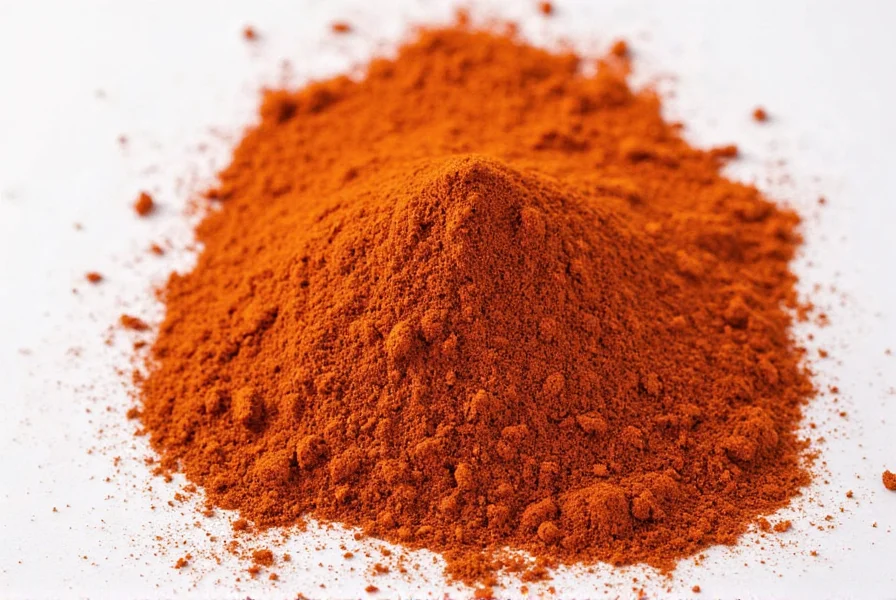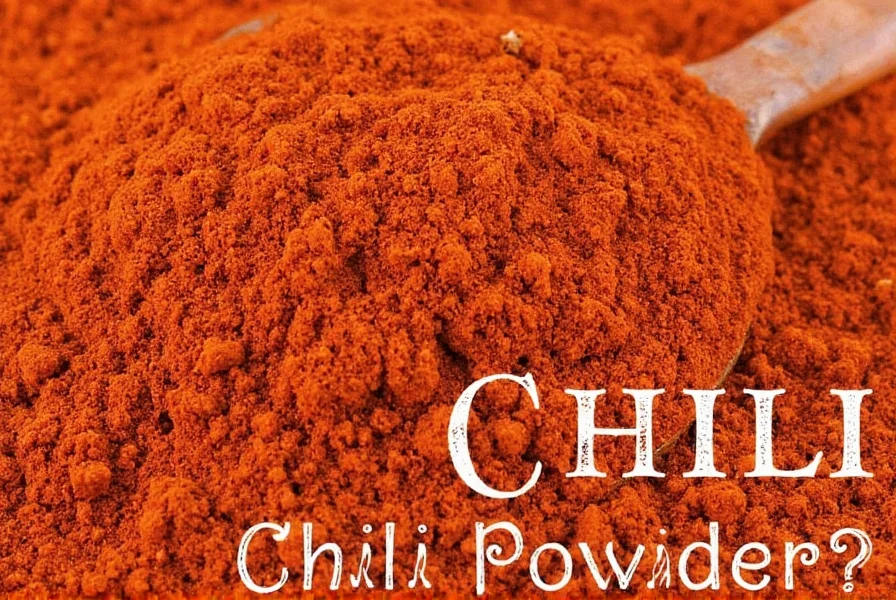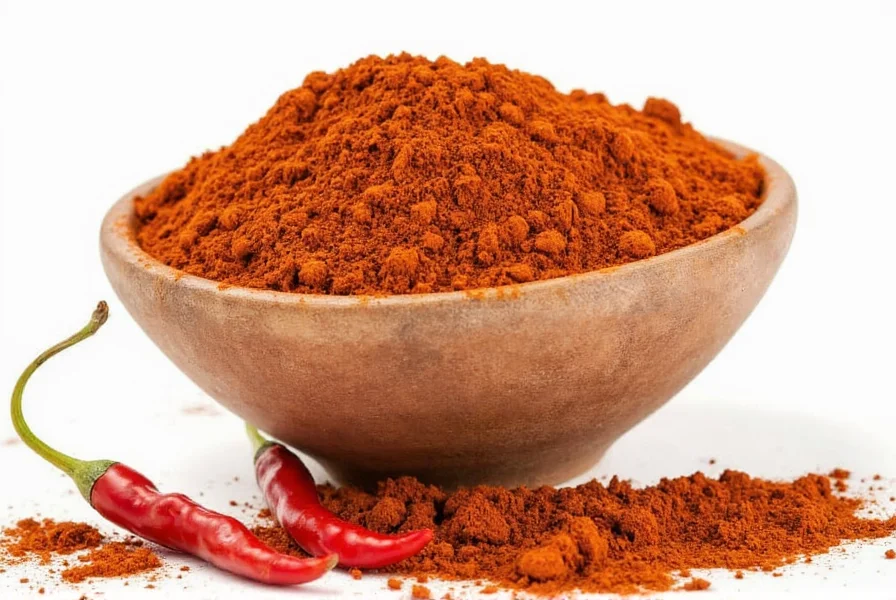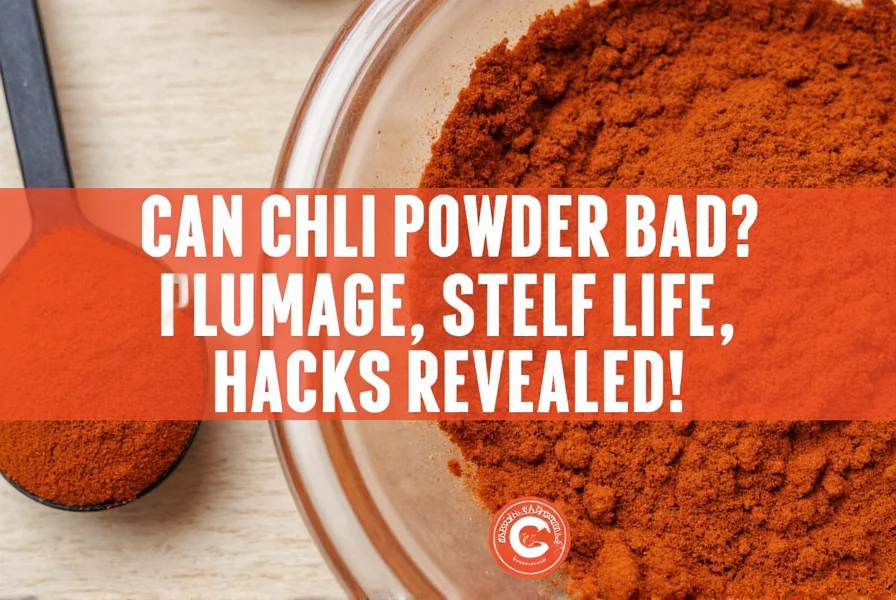Yes, chili powder can lose potency and quality over time, but it rarely becomes unsafe to eat if stored properly and shows no mold or moisture damage. The main risk is diminished flavor, not food safety. This guide provides evidence-based answers to your most urgent questions: Is expired chili powder safe? How to spot spoilage? And how to store it correctly for maximum freshness.
Key takeaways:
- Chili powder doesn't spoil like perishable foods but gradually loses heat and aroma
- It is safe to consume if free of mold, moisture, or insect infestation
- Proper storage in airtight containers away from heat/light extends shelf life significantly
Table of Contents
- Is Expired Chili Powder Safe to Eat?
- Chili Powder Shelf Life Facts
- Critical Signs of Spoilage (Safety Focus)
- Proper Storage Techniques for Food Safety
- How to Choose Quality Chili Powder
- FAQs: Evidence-Based Answers
Is Expired Chili Powder Safe to Eat?
According to the USDA Food Safety and Inspection Service, dried spices like chili powder are low-risk for bacterial growth due to their minimal moisture content. While they lose potency over time, expired chili powder is generally safe to consume if it shows no visible mold, clumping from moisture, or off-odors. The primary concern is reduced flavor quality, not foodborne illness.
The FDA confirms that spices do not require expiration dates for safety reasons, but manufacturers include "best by" dates for optimal flavor. When stored properly in dry conditions, chili powder remains safe indefinitely, though its heat and aroma diminish after 1-2 years.
Chili Powder Shelf Life Facts
Based on USDA and International Spice Association guidelines, here's how long chili powder maintains quality:
| Type | Best Before | Potency Loss Timeline |
|---|---|---|
| Pure Ground Chilies | 3–4 years | 1–2 years after opening |
| Commercially Blended Chili Powder | 2–3 years | 6–18 months after opening |
| Homemade Chili Powder Blend | 6–12 months | 3–6 months after grinding |
These timelines reflect flavor degradation, not safety risks. The "best by" date indicates when quality starts declining, not when it becomes unsafe.
Critical Signs of Spoilage (Safety Focus)
Only discard chili powder if you observe these food safety-critical signs:
- Mold or moisture damage: Any visible mold growth or clumping due to moisture requires immediate disposal. This is the only safety concern.
- Insect infestation: Live insects or webbing indicate contamination.
Other changes like color fading or reduced aroma indicate quality loss but do not affect safety. The USDA emphasizes that dried spices rarely support pathogen growth when stored correctly.

Proper Storage Techniques for Food Safety
Follow these evidence-based storage practices to prevent moisture-related spoilage:
- Airtight container: Store in glass or metal jars with tight-sealing lids. Plastic containers may allow moisture ingress over time.
- Cool, dark place: Keep away from heat sources (stove, oven) and direct sunlight. The ideal temperature is below 70°F (21°C).
- Avoid refrigeration: Refrigerators introduce moisture that causes clumping. Only refrigerate in extremely humid climates (above 70% humidity).
- Never use wet utensils: Always use dry spoons to prevent introducing moisture into the container.

How to Choose Quality Chili Powder
For maximum freshness and safety, prioritize these features when purchasing:
1. Packaging
- Dark glass bottles: Better light protection than plastic (prevents flavor degradation)
- Sealed packaging: Check for tamper-evident seals to ensure no moisture exposure during shipping
2. Ingredient Transparency
- Pure chili powder: Look for "100% ground chilies" with no fillers like flour or starch
- Clear manufacturing date: Avoid products without date codes
| Brand | Key Safety Features | Best For |
|---|---|---|
| McCormick Chili Powder | USDA-inspected facility, tamper-evident packaging | General cooking with consistent quality |
| La Costeña Chile en Polvo | Single-origin chilies, no additives, sealed metal tins | Mexican cuisine purists |
| Spice Islands Smoked Chili Powder | Light-blocking glass bottles, nitrogen-flushed packaging | Grilling and BBQ applications |

FAQs: Evidence-Based Answers
Does chili powder expire?
No, chili powder does not "expire" in the safety sense. The "best by" date indicates when flavor and heat begin declining, not when it becomes unsafe. The FDA states dried spices have no required expiration dates because they don't support pathogen growth when stored properly.
Is it safe to eat expired chili powder?
Yes, if stored correctly and free of mold/moisture. According to the USDA, dried spices like chili powder have extremely low moisture content (below 10%), making them inhospitable to bacteria and mold. The only safety risk comes from moisture contamination, which is preventable through proper storage.
How can you tell if chili powder is bad?
Only discard if you see mold growth or insect infestation. Faded color, weak aroma, or clumping from humidity indicate quality loss but do not affect safety. If clumping occurs but there's no mold, you can still use it—just expect reduced flavor.
Should chili powder be refrigerated?
No. Refrigeration introduces moisture that causes clumping and mold risk. The USDA recommends storing spices in a cool, dry pantry away from heat sources. Only refrigerate in environments with constant humidity above 70%.
Why does chili powder clump?
Clumping occurs due to moisture absorption from humid air or wet utensils. This is a quality issue, not a safety hazard. To prevent it, always use dry spoons, ensure containers are tightly sealed, and store away from steam sources like dishwashers or sinks.
How long is chili powder good after the expiration date?
Properly stored chili powder remains safe indefinitely. Flavor and heat degrade gradually: commercial blends maintain good quality for 12-18 months past the "best by" date, while pure chilies last up to 2 years. The "expiration" date refers to peak quality, not safety.
Can old chili powder make you sick?
Only if mold or insect infestation is present. Otherwise, no. The FDA confirms dried spices are among the safest pantry items due to their low moisture content. A 2020 USDA study found no foodborne illness cases linked to properly stored dried spices over 10 years of monitoring.











 浙公网安备
33010002000092号
浙公网安备
33010002000092号 浙B2-20120091-4
浙B2-20120091-4